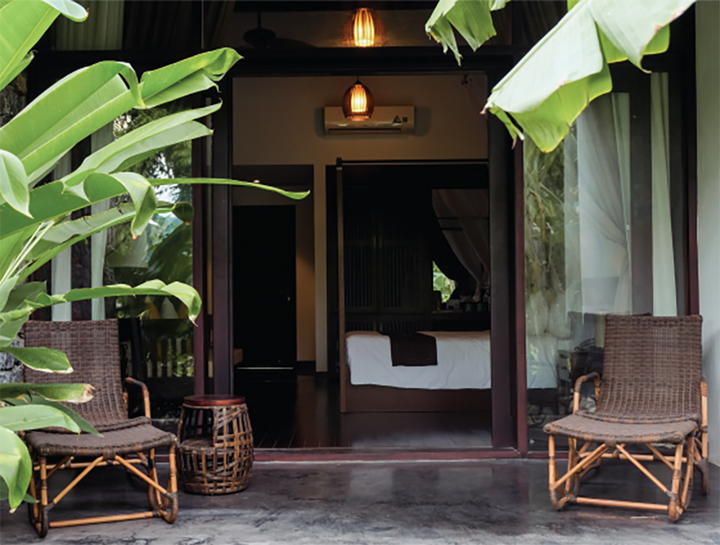Feng shui, an integral part of East Asian culture, holds significant importance in one’s life. A house with good feng shui not only brings comfort and harmony to its inhabitants but is also believed to attract luck, wealth, and health. So, how can one identify a house with good feng shui?
Signs of a House with Good Feng Shui
Numerous factors contribute to the feng shui of a house, and a house with positive feng shui will possess the following advantages:
Favourable Location and Orientation
Location is paramount in feng shui. An ideal house is situated on higher ground, free from flooding, and close to major roads with convenient transportation. Additionally, the house should have a bright and spacious frontage, known as ‘ming tang’ in feng shui terms.
When it comes to orientation, traditional feng shui favors the south or southeast-facing houses as they receive early morning sunlight and enjoy a mild climate. However, the choice of orientation should also align with the age of the homeowner, following the ‘ba zhai’ principle.

A favorable location and orientation are signs of good feng shui. (Image: Charmingsardinia)
Sturdy and Well-Ventilated Main Entrance
The main entrance, considered the “mouth” of the house, is crucial in feng shui as it takes in external energy. Thus, it should be unobstructed, clean, and free from obstacles like utility poles, large trees, or tall walls directly opposite it.
A sturdy door that opens smoothly without creaking and does not face the staircase or toilet directly indicates that positive energy can flow freely, bringing good fortune and health to the homeowners.
Abundant Natural Light and Harmonious Airflow
A house with good feng shui must have ample natural light, avoiding gloom and darkness. Light represents ‘yang’ energy, a positive force in feng shui. Conversely, a dark and damp house attracts ‘yin’ energy, which can negatively affect the mental and physical well-being of its inhabitants.
In addition to light, proper airflow is vital. A house with multiple windows and good ventilation prevents stagnant air and maintains a balance between ‘yin’ and ‘yang’ energies.
Harmonious and Tidy Layout
Clutter and disorganization within the house not only affect its aesthetics but also hinder the flow of energy. A well-organized and tidy house allows energy to circulate smoothly, creating a relaxing and pleasant atmosphere.
Functional spaces should be arranged logically, such as keeping the bedroom away from the kitchen and toilet, avoiding mirrors facing the bed, and placing the altar in a quiet and elevated position. These small details contribute to the overall harmony of the house.
Incorporation of Natural Elements
Natural elements like greenery, water features, and rock gardens bring a sense of freshness and help balance the feng shui energies. Well-maintained plants and trees indicate that the homeowners nurture positive energy within the house.
However, withered plants and stagnant water in ponds or rock gardens should be avoided, as they may attract negative energies instead.

Natural elements are a sign of good feng shui in a house. (Image: Aravinda)
Quiet and Peaceful Environment
Feng shui discourages living near landfills, power substations, railroad tracks, or areas with excessive noise pollution. Such chaotic sounds disrupt energy, leading to sleeplessness, stress, and negative emotions.
An ideal house is located in a quiet environment, away from negative sound sources, promoting relaxation and energy rejuvenation.
Healthy and Positive Inhabitants
Feng shui is not just about external factors; it also reflects the internal dynamics of the house. A harmonious family with minimal conflicts, good health, and stable careers indicates positive feng shui. Conversely, frequent disputes, prolonged illnesses, and work-related issues may signify the dominance of negative energies.
Absence of Negative Feng Shui Elements
Feng shui strongly advises against certain unfavorable elements, such as large mirrors facing the main entrance (‘fan qi’), the house facing a T-junction (‘xung sat’), or balconies facing the sharp edges of neighboring roofs (‘tuyen dao sat’). These configurations are believed to bring misfortune if not remedied appropriately.
In conclusion, a house with good feng shui encompasses various elements: a favorable location, abundant natural light, clean air, harmonious layout, and positive energies from its inhabitants. While achieving perfection may not be feasible for everyone, simple adjustments based on feng shui principles can significantly enhance one’s luck and quality of life. Embrace feng shui as an art of living harmoniously with the environment and oneself.
The Pros and Cons of L-Shaped Houses
The L-shaped house is a popular architectural choice for many families, and for good reason. This unique layout offers a range of benefits that cater to the modern family’s needs, but it also has its drawbacks. With a distinct L-shape, this home design provides an interesting and functional living space that sets it apart from traditional rectangular homes.
Cielo: The Ultimate Family-Friendly Residence, Riding the Wave of Long-Term Price Appreciation
Cielo Apartments, part of the Destino Centro complex, aims to be the first home for many young families. With a development philosophy centered around authentic living, Cielo seamlessly blends design, location, amenities, and affordability, redefining the concept of “cozy yet fulfilling” in Ho Chi Minh City’s western district.
The Cosmopolitan: A Distinctive Lifestyle Manifesto for the New Global Citizen
The Cosmopolitan at Global Gate is an exclusive integrated development, comprising luxury residences, offices, and commercial spaces. What sets it apart is its focus on three core elements: a strategic location, a personalized ecosystem, and a global mindset. This is not just a place to live, but a destination that elevates one’s status and connects them with an elite network.





















